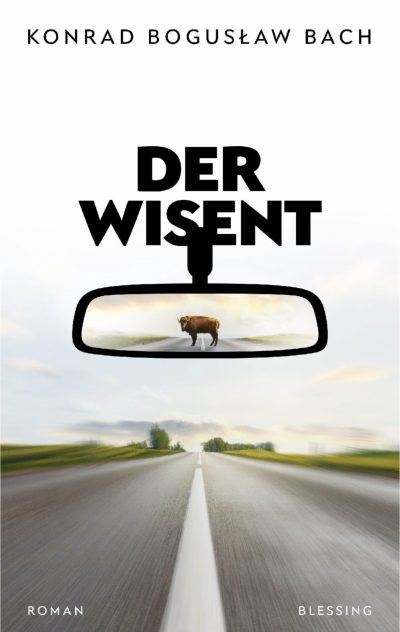The author and film-maker Konrad Bogusław Bach. Between Poland and Germany

Konrad Bogusław Bach was born in Nakło nad Notecią in 1984. Soon afterwards, his parents moved to a rural area near the town, and his early childhood memories revolve around the chicken shack and his attempts to fry eggs on a sunny rock with one of the boys next door. He also clearly remembers his grandfather sitting in front of the piano with his fishing rod and tackle, hoping to catch the mouse that lived inside, as well as the big open sky above northern Poland. He also recalls playing chess with his grandfather, although naturally, his memories have been coloured over the years by family anecdotes and his own accounts of his childhood. At any rate, it was his grandfather who taught him to play chess. At first, he would let the boy win, so that he learned to enjoy the game; later, he would play “properly” so that the young Konrad would learn not only how to play, but also how to lose. Young Konrad never liked losing, however. If his beloved queen was taken, he would cry and throw a tantrum. Soon, his grandfather began to fear the games of chess, although he remained steadfastly true to his educational principles: the young boy would have to learn to get to grips with real life. Sometimes, other people are simply better than you.
Even so, life was good. It could have continued that way, but Konrad’s parents wanted more. They were keen to emigrate to the West, with all the promise it held. And didn’t they have relatives living in the USA? During the late 1980s, it wasn’t easy to get there from Poland. First, they needed an address in West Germany. They had one to hand: from a German couple whom they had helped in Poland when their car had broken down. At the border control hall at Friedrichstrasse station known as the “Palace of Tears” (Tränenpalast), they had to formally present themselves to the East German authorities in order to obtain a visitor’s visa. According to a family anecdote, the GDR officer was highly sceptical when he looked at the young family and their application papers. Were these lively, energetic young people really to be trusted? Might they never come back once they had crossed the border? Apparently, the young Konrad then suddenly grabbed his behind and said: “I really need to poo!”. The official recognised the urgency of the situation and let the Bach family pass. In Hamburg, they had planned to meet with another family from Poland and then take a plane to the United States. However, the Bachs arrived too late; instead, they spent some time in Hamburg in 1989, and quickly realised that the money from the sale of their small house and car would only suffice for a few weeks in the golden West. There was no question of buying an expensive air ticket. Instead, they headed for Friedland, near Göttingen, where there was a large reception camp for ethnic German resettlers. Konrad Bach still has vivid memories of the large TV in the recreation room, where he saw David Hasselhoff as Knight Rider for the first time. He loved watching the man with curly hair tearing through the desert in his black car... Fantastic! The “home kindergarten” (domowe przedszkole) simply couldn’t compete. The Bachs, who until that point had been known by their Polish name, Blechacz, were quickly officially recognised as native German resettlers. They legally became German and were even given a new name. They also received permission to work. Konrad’s parents lost no time finding jobs. In her new home in southern Hanover, his mother trained as an industrial management assistant and was later taken on as an employee of the city’s cemetery administration. His father first found work as a landscape gardener, then as a caretaker in green space maintenance. When they weren’t working, his parents learned German and spent time with Konrad and his brother, who was two years younger. Later, the two would be joined by a sister and twin brothers. Konrad Bach remembers that despite being so busy training and learning German, his mother still found time to help him and his brother with their homework, answer questions and help them find their way in their now homeland. “Now I realise how important that was”, he says, now aged 40, after spending a period of time working as a primary school teacher. He quickly learned German. For him, German is now his mother tongue, even if he is aware that this might sound strange. As a primary school pupil, he not only learned German at school and on the street, but also from TV. When he and his brother went to church with his parents on a Sunday and didn’t recognise the songs that were being sung, they would simply join in with tunes they had learned from TV adverts. The Bach children were quite happy to sing along with the melodies for “Ültje” nuts, Allianz insurance deals or Parma ham.



